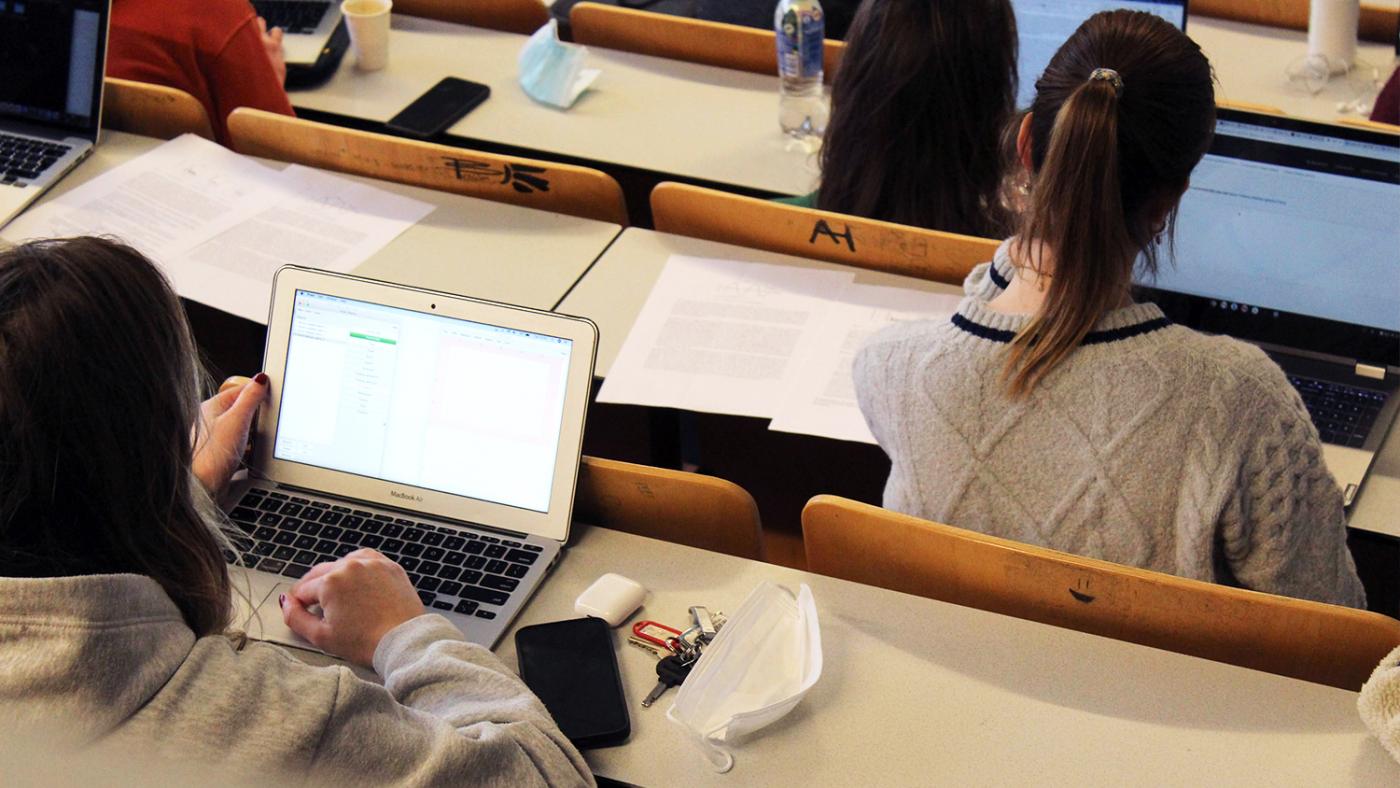Relieve work and study stress
Great demand for ‘smarter’ academic year

The idea for a ‘smarter academic year’ was conceived by The Young Academy, the society of relatively young top scientists affiliated with the Royal Netherlands Academy of Arts and Sciences (KNAW). A comparison with other countries shows that the academic year in the Netherlands is up to nine weeks longer than elsewhere in Europe. This is thought to result in inefficiency and a high workload at universities in particular. Education Minister Robbert Dijkgraaf saw potential in the experiment and is now allocating 13 million euros for it.
Fourteen universities and Hanze University of Applied Sciences are taking part. The University of Amsterdam and Erasmus University Rotterdam are acting as coordinators. Each institution is allowed to participate with up to three pilot projects.
Shorter blocks
Last May, UU announced its intention to participate in various experiments to reduce the work and study pressure. A working group was not only looking at a different design of the timetable, but also at curriculum changes, alternative testing methods and different teaching methods.
Incidentally, a number of faculties are already experimenting with fewer weeks of education. Humanities has been working for some time with blocks of eight weeks instead of the usual ten weeks. The faculties of Law, Economics, Management and Organization (REBO) and Social Sciences conducted experiments with limiting the block to nine teaching weeks.
‘Smarter’
In the trials, educational programmes can reduce the number of teaching weeks “in a sensible manner” and set up the academic year differently, without impacting the content. There will be teaching-free periods in which there is time for reflection, research, summer schools, student projects and internships.
Need
According to Dijkgraaf, the huge interest shows just how much students, lecturers and researchers need more ‘breathing space’. “Many students are suffering from overfull study weeks, lecturers are experiencing high workloads and researchers have too little time for research. We really have to improve that situation.”
Nevertheless, the ‘smart academic year’ has also been criticised. The ComeniusNetwork of lecturers in higher education warned that cutting lecture time could have a negative effect on the quality of education. And the Dutch National Students’ Association emphasised that reducing the number of teaching weeks must not be motivated by financial considerations.
The project, which runs until 2026, will be evaluated in two years’ time. Dijkgraaf is also considering facilitating more initiatives. On Tuesday afternoon, a kick-off meeting will be held at the University of Amsterdam at which the institutions will discuss the projects they want to carry out.
The fourteen participating universities also include the University of Humanistic Studies and the Theological University of Apeldoorn. TU Delft and the Open Universiteit are not taking part.